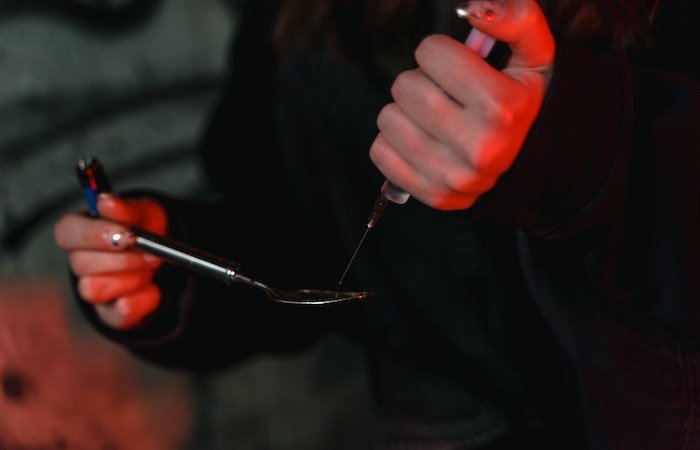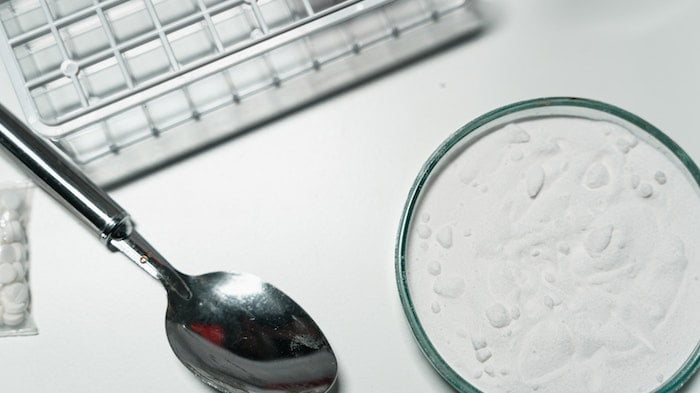Drug and Alcohol Rehab in Macclesfield
The lives of the people caught up in drug and alcohol addiction are devastated by the condition.
It can be difficult to reach out to get the help you know you need, and knowing where to turn can be a problem.
We are experts in finding the right drug and alcohol rehabs in Macclesfield to make sure you get the best care.
We know what problems you are encountering and can provide the help you need to overcome this, getting you the help which matches your situation.
Our track record of finding suitable centres for people in similar situations to you makes us confident that we will be able to guide you on to a path to recovery which will work for you.
Drug and Alcohol Statistics in Macclesfield

Instances of rising substance addiction are one of the more serious problems faced by communities across the UK: affecting our emergency services, crime rates, and the overall health of residents.
Unfortunately, counties in northwest England such as Cheshire are no strangers to the effects of drug and alcohol use disorders, as revealed by statistical evidence.
Located in the heart of Cheshire, the market town of Macclesfield experiences many of the problems prevalent in the surrounding area.
In their most recent report, The Local Alcohol Profiles for England provided worrying data on the extent of alcohol-related harm in the Macclesfield locale, deriving statistics from local hospitals and emergency services.
- In 2020, Cheshire lost a total of 146 residents due to hazardous drinking and alcohol poisoning: a tragic figure highlighting the community-wide need for treatment at a drug and alcohol rehab in Macclesfield.
- Moreover, local hospitals experienced 2,540 admissions for alcohol-specific conditions and treated 5,846 people for alcohol-related illnesses.
- According to guidance from the National Institute for Health and Clinical Excellence (NICE), over 24% of the Cheshire population drink in a hazardous way: equating to around 73,213 people aged 16 years and over who are considered problematic drinkers.
- Overall, alcohol dependence is a condition affecting around 4% of 16-65-year-olds in the area, equating to 9,497 dependent drinkers aged 16-65 years old in the Cheshire East and Macclesfield locale.
Harrowingly, the statistics relating to illicit drug misuse in the town of Macclesfield and the surrounding area are just as concerning.
- New figures show that drug-related deaths rose to record-breaking highs in the county last year, with 35 deaths related to drug poisoning registered in Cheshire West in 2021 and a further 30 in Cheshire East.
While instances of drug-related deaths represent the worst-case scenario for individuals in Macclesfield, substance addiction doesn’t just affect the person directly suffering.
- In 2018-2019, Public Health England estimated that in the Cheshire area, 705 adults with alcohol use disorder were living with children: creating a less-than-ideal living situation for their dependents.
Moreover, 75% of these alcohol-dependent individuals were not being treated for their condition at the time the study was conducted. With this in mind, addicted individuals need to realise that specialist help is waiting for them at a certified drug and alcohol rehab in Macclesfield.
For more information on drug and alcohol rehab in Macclesfield, contact us today on 0800 088 66 86
The Disease Model of Addiction

After centuries of stigmatisation, many people find themselves wondering whether substance addiction is a lifestyle choice or a disease.
To put it simply, while initially taking a drug or drinking alcohol is a decision made by the individual, developing an addiction is out of their hands. For many, substance addiction is a disease requiring treatment at a drug and alcohol rehab in Macclesfield.
Since new scientific and biological discoveries, addiction has received a new name: Substance Use Disorder (SUD). Akin to well-known conditions such as cancer and diabetes, SUD occurs when social, environmental, biological, and genetic components combine in the victim.
This combination is then exacerbated by ways in which addiction changes the chemistry of our brains. In someone biologically or genetically pre-disposed to SUD, repeated substance use and the feelings of euphoria it gives them cause their brain’s reward system to change.
Areas such as the prefrontal cortex that are responsible for repeating pleasurable activities become accustomed to the higher levels of dopamine produced by drug or alcohol use.
As this part of the brain becomes used to higher dopamine levels, it cannot function properly without it: sending out cravings and other symptoms when substance misuse ceases.
Short-term symptoms often include worrying physical reactions, especially in the first 72 hours after someone’s last drink or drug dose. These include vomiting, sweating, shaking, seizures, migraines, muscular pains, and many more.
Alongside bodily symptoms, addicted individuals may experience a range of psychological discomfort. Oftentimes, substance misuse will exacerbate co-occurring mental disorders, alongside causing symptoms such as anxiety, depression, hallucinations, paranoia, and psychosis.
For more information on drug and alcohol rehab in Macclesfield, contact us today on 0800 088 66 86
Diagnosing Substance Use Disorder

While substance use disorders are often self-diagnosed, an official diagnosis requires a thorough evaluation conducted by a counsellor, psychiatrist, or addiction specialist.
Making an evaluation will help clinicians understand the context and severity of someone’s addiction; only then can they make treatment recommendations and know when it’s necessary to send someone to a drug and alcohol rehab in Macclesfield.
To obtain a formal diagnosis, individuals with a suspected addiction must approach their primary care physician or GP.
This professional will ask questions about any withdrawal symptoms that have occurred, the frequency of drug or alcohol use, and how this use has impaired their patient’s daily living.
However, for addiction treatment to have a lasting impact, an individual must first realise that they have a problem with either drugs or alcohol.
With this in mind, clinical authorities such as WHO and the DSM-5 have created their own set of assessments that can be used by both doctors and addicted individuals outside of a clinical setting.
While such assessments do not constitute an official SUD diagnosis, they can help someone who is suffering realise that they are eligible and deserving of help.
For instance, individuals plagued by daily, problematic drinking can access a quick questionnaire in the form of the Alcohol Use Disorder Identification Test (AUDIT).
This WHO-approved 10-item test is used across the globe to screen patients for risky alcohol consumption and can be used at home or in a doctor’s office.
To identify a possible addiction, AUDIT respondents must answer questions related to consumption frequency and the emotional, social, and health-related impacts of their drinking.
The answer that they give to each question governs how many points they receive; for example, answering a question with “never” means you’ll score 0 points for that question while responding “daily or almost daily” provides a score of 4.
Generally, scores of 8 or more are considered an indicator of harmful alcohol use in need of further treatment at specialised alcohol rehab.
The DSM-5 criteria is another resource used more generally to screen for substance use disorders: covering both illicit drug and alcohol addictions.
This 11-item diagnostic tool includes all of the main signs and symptoms of SUD and states that respondents should identify with at least 2 before they become concerned.
Grouped into 4 categories (risky use, physical dependence, impaired control, social problems), the criterion aims to give the respondent clarity on how much their life has been impacted by their substance use.
Identifying 2 or 3 symptoms indicates a mild substance use disorder, while six or more indicates a severe addiction needing urgent care.
Other ways to help identify whether you have an addiction include the CAGE Questionnaire and ASAM (American Society of Addiction Medicine) Criteria.
For more information on drug and alcohol rehab in Macclesfield, contact us today on 0800 088 66 86
Pros and Cons of Public Addiction Treatment

Famously free at the point of contact, NHS treatment programmes are the primary form of public addiction treatment in the UK.
Those looking for a cost-effective treatment option can access a variety of options via the NHS: including both individual therapy programmes at a drug and alcohol rehab in Macclesfield, and community-based support.
While undergoing their NHS treatment programme, patients will have access to many of the same professionals working at private rehabilitation clinics, including specialists, psychiatrists, and addiction consultants.
While treatment is less likely to be bespoke, NHS recovery programmes are generally thought to be of a high standard, with both therapeutic and pharmacological support available.
Furthermore, NHS patients will most likely be offered outpatient treatment which, while more remote, can be optimal for those who are high functioning in their addiction.
Rather than being on-site for the entirety of the treatment, individuals can continue living their lives and going to work, school, or undertaking essential responsibilities.
This degree of flexibility is reflected in the different levels of outpatient care offered by the NHS.
Those with less chronic addictions may be offered a relaxed outpatient programme consisting of just 1-2 appointments each week, while patients suffering from severe SUD should undergo an intensive outpatient plan with daily or bi-daily therapy sessions.
Several free and NHS-run recovery services operate in and near to Macclesfield, including:
1. CAMHS Cheshire East
Address: Elm House, The Priory Unit, Lea Bank Road (off Chester Road), Macclesfield, SK11 8QA
Telephone: 01625 712 042
Website: https://www.cwp.nhs.uk/our-services/east-cheshire/east-cheshire-0-16-CAMHS
2. Reach Out and Recover
Address: 199c, Peter St, Macclesfield, Cheshire. SK11 8ES
Telephone: 01625 619 106
Website: http://www.reachoutandrecover.org/
3. Richmond Fellowship
Address: 93 Priory Ln, Macclesfield, SK10 4AF
Telephone: 01625 410 817
Website: https://www.richmondfellowship.org.uk/
However, some major disadvantages of NHS addiction treatment need to be considered.
Especially concerning since the pandemic, widespread problems include a lack of funding, waiting lists, slow rates of admission, and a lack of choice over where you will receive treatment.
In many parts of the UK, the waiting lists for drug and alcohol treatment are exceedingly long: with many individuals going months without seeing a clinician or consultant.
While they wait, an addicted individual is at a higher risk of drug or alcohol poisoning and further complications that can potentially be fatal.
Moreover, the NHS is plagued by budget constraints that they must stick to, meaning that they simply do not have the funding for comprehensive treatment.
Therefore, they must save their funding for cases that they consider to be extremely severe at the expense of addicted individuals who would benefit from rehabilitation.
Other organisations you can reach out to include Al-Anon, Alateen, Change Grow Live, Turning Point, We Are With You, the National Association for Children of Alcoholics, the NHS Foundation Trust and Samaritans.
For more information on drug and alcohol rehab in Macclesfield, contact us today on 0800 088 66 86
Pros and Cons of Private Addiction Treatment

Perhaps the most effective way of reducing your risk of relapse and encountering the temptation to use is by attending a private drug and alcohol rehab in Macclesfield.
While self-funded, these rehab visits provide patients with a personalised, confidential approach and a variety of on-site treatment options.
Here in the UK, private rehabilitation facilities are separated from the damaging impacts caused by budget cuts and staffing issues.
This means that those entering a self-funded programme will receive personalised treatment catered towards their unique personal history, preferences, and substance use problem. Bespoke care greatly increases treatment retention rates by allowing patients to feel that their problems are being addressed directly.
Moreover, a private drug and alcohol rehab in Macclesfield will offer residential programmes: ensuring that the patient’s treatment is uninterrupted.
Oftentimes, NHS patients must return home after therapy to contend with relapse triggers, whereas those enrolled in private rehab reap the rewards of consistent professional guidance.
Due to decreased demand and fully functional services, those opting for private care can start their recovery journey immediately thanks to the swift rates of admission.
After a brief assessment and discussion of payment, patients can access a bed in comfortable, modern accommodation facilities within 48 hours of reaching out for help.
However, perhaps the main concern among those considering private treatment is how they will finance their treatment, or pay for the care of a loved one.
With some clinics costing thousands per week for comprehensive treatment, it’s no wonder that many families consider private care to be simply unaffordable.
Despite this, there is a range of ways to make reaping the rewards of private rehabilitation more accessible: from choosing a budget clinic to paying for treatment in monthly instalments.
A budget-friendly drug and alcohol rehab in Macclesfield or elsewhere in the UK can cost around £1,000 per week, which includes bed, board, and an array of therapeutic support.
For more information on drug and alcohol rehab in Macclesfield, contact us today on 0800 088 66 86
Rehab For Alcohol Use Disorder (AUD) In Macclesfield

For most people, drinking is a part of their weekly social ritual, but for some, alcohol consumption becomes an inescapable daily habit.
For those who need alcohol to function in day-to-day life, further devastation to their health can be avoided by entering a drug and alcohol rehab in Macclesfield.
Many inpatient rehab clinics offer programmes specialised in treating alcohol addiction: a progressive disease that can cause life-threatening withdrawal syndromes.
Depending on their severity, AUD victims will be prescribed a traditional inpatient programme lasting 28-30 days, or a long-term treatment plan lasting 60-90 days or more.
Both treatment durations offer patients a structured residential detox to help rid the body of its physical alcohol dependence.
In the first few weeks of their recovery programme, subjects will taper down their alcohol intake with the help of a bespoke medication protocol and round-the-clock professional assistance.
The detoxification stage for alcohol is infamous for provoking serious side effects such as Delerium Tremens (DT): a condition characterised by seizures.
As such, inpatient alcohol rehab programmes often employ Medication Assisted Therapy (MAT) to help prevent withdrawal symptoms and ensure patients stabilise comfortably.
One of the most commonly used medications during alcohol detox is chlordiazepoxide: a type of benzodiazepine drug used to reduce anxiety and other adverse psychological symptoms.
To eliminate the risk of seizures, hallucinations, and other symptoms of DT, anticonvulsants such as phenobarbital are combined with sedatives like clonazepam to help the nervous system reach a state of equilibrium.
Following detoxification, daily counselling and psychotherapeutic interventions are utilised to teach recovering AUD victims how to cope with cravings and their lingering psychological addiction.
The underlying causes of addiction are confronted by individual therapies such as CBT, while group therapy sessions help patients work on rebuilding personal relationships without alcohol.
If you have an alcohol addiction you will need to have an alcohol detox before you can begin any treatment. This means you will likely experience alcohol withdrawal symptoms.
For a physical dependence on a substance, such as alcohol, you will need a medically-assisted detox – this is underseen by a doctor or medical professional. You will also need one of these for heroin withdrawal for example.
After your detox, you may be prescribed Librium or Chlordiazepoxide which will help with the symptoms of withdrawal.
Long-term complications of substance abuse include:
- Delirium Tremens
- Hepatitis
- Seizures
- Wernicke Encephalopathy
- Alcohol Withdrawal Syndrome
For more information on drug and alcohol rehab in Macclesfield, contact us today on 0800 088 66 86
Rehab For Cannabis in Macclesfield

A psychoactive substance derived from the cannabis plant, the levels of THC present in “weed” or “pot” makes the drug potentially addictive.
For those battling cannabis use disorder, the damage inflicted on their health, finances, and relationships makes it imperative to attend treatment at a drug and alcohol rehab in Macclesfield.
For some individuals, ceasing cannabis use can be achieved via outpatient treatment alone, but for many, staying overnight at a rehab centre is needed to remove them from relapse triggers. It might be that they’ve tried to quit cannabis alone without success, or that they are surrounded by fellow users providing constant temptation.
Whatever the drive behind selecting inpatient care, patients will need to start their recovery programme with a cannabis detox.
Heavy, prolonged consumption can cause a variety of withdrawal symptoms, particularly psychological, including anxiety or nervousness, insomnia, depressive episodes, and irritability.
Although these symptoms are likely to subside without issue in 3-7 days, it’s important to detox somewhere safe and comfortable with around-the-clock access to professionals.
During a bespoke cannabis detox at a drug and alcohol rehab in Macclesfield, you’ll have all the holistic, emotional, and nutritional support needed to prepare for further therapies.
Learning to identify triggers and manage relapse stressors is a crucial part of leading a life free from cannabis. Therefore, rehab clinics include a range of research-based therapeutic methods, conducted by licensed professionals who can ensure the safety of their patients throughout treatment.
Some of the methods used to foster recovery and well-being include DBT, CBT, Motivational Enhancement Therapy (MET) and Contingency Management. Research and countless success stories have shown that a combination of these strategies is beneficial, especially for those undertaking them on an inpatient basis.
While MET helps addicted individuals explore their motivations and strengthen their willpower, CBT helps them develop relapse-prevention skills and prosocial behaviours.
Meanwhile, CM rewards the individual with gift cards or vouchers when they demonstrate positive behaviours, such as abstinence from cannabis or treatment retention.
For more information on drug and alcohol rehab in Macclesfield, contact us today on 0800 088 66 86
Rehab For Heroin in Macclesfield

As high maintenance as they are debilitating, heroin use disorders cause such severe cravings that their victims are often permanently looking for their next dose.
This often leads people down a harrowing pathway of physical, mental, and social destruction that can only be remedied at a drug and alcohol rehab in Macclesfield.
As heroin addictions carry a higher risk of withdrawal and relapse, victims should check into an inpatient facility for 30, 60, or 90 days, with longer stays optional for severe opioid use disorders.
Not only will they benefit from the medical assistance provided, but they’ll also undertake a highly structured programme to keep them focused on recovery, alongside nutritional support and aftercare planning.
Before specialised therapy can take place, addicted individuals must flush heroin from their system using a slow, professionally-designed taper.
Depending on the method someone uses to consume heroin, the length of their addiction, and the purity of their last dose, detox can take anywhere between 1-3 weeks.
These factors are combined alongside other personal details to form a patient’s bespoke detox strategy. During this challenging part of recovery, subjects are provided with holistic, emotional, and pharmacological support complete with tailored medication.
Opioid Substitution Therapy (OST) can dramatically reduce someone’s risk of withdrawal and cravings by gradually swapping heroin for a slow-release opiate substitute.
By attaching to the same brain receptors as opiate drugs, buprenorphine and methadone can mimic the effects of heroin enough to prevent withdrawal symptoms from forming, but without causing the same high and thereby avoiding cravings.
After temporarily replacing heroin with a weaker opioid until stable sobriety is achieved, behavioural and psychosocial therapies will be offered to patients.
For the remainder of their residential programmes at rehab, patients will work through courses of therapy designed to help them manage cravings and cope with other challenges preventing their recovery.
Group therapy helps patients build a sense of community by supporting others with similar opiate-based experiences, while individual therapy provides cognitive training.
Strategies such as contingency management, cognitive behavioural therapy, and motivational interviewing provide patients with a lens through which they can envisage and work to achieve a life free from heroin.
For more information on drug and alcohol rehab in Macclesfield, contact us today on 0800 088 66 86
Rehab For Cocaine in Macclesfield

Due to the nature of this central nervous stimulant, cocaine addictions are rife across the world, including in the UK.
By increasing the amount of dopamine available to the brain, cocaine users will crave the drug as soon as it starts to wear off, causing chronic addictions in need of care at a drug and alcohol rehab in Macclesfield
Cocaine Use Disorder (CUD) can cause physical, mental, social, and financial ruin, making it important to attend an inpatient facility for at least one month after completing a medicated detox.
In the case of most substance addictions, completing a medically supervised detox will give you the highest chance of achieving a successful recovery, and CUD is no exception.
However, unlike other substance addictions, those abusing cocaine have a higher risk of psychological withdrawal than physical. This is because their brains must get used to receiving less dopamine, with anxiety and depressive symptoms a part of this stabilisation process.
With this in mind, cocaine detox protocols are usually designed holistically rather than medically.
Though patients may be prescribed drugs such as Beta-Blockers for anxiety or SSRIs for co-occurring depression, the main focus is providing them somewhere safe and relaxing to complete their tapering schedule.
They’ll also receive plenty of clinical support from their team of psychiatrists, counsellors, and addiction specialists, no matter the time of day. Vitamin supplements, nutritional guidance, and holistic therapies may also be available on-site for detox patients to maximise their well-being before undergoing further psychotherapy.
Psychotherapeutic methods are crucial in helping patients learn more about themselves and their unique cocaine addiction. The coping strategies learnt during one-to-one sessions with a therapist will be carried over into life outside of rehab: serving as effective relapse prevention planning.
Each cocaine programme at a drug and alcohol rehab in Macclesfield utilises its hybrid of treatments, but there are some common themes among clinics.
Dialectical and Cognitive behavioural therapies can help patients manage stress, while group therapies allow individuals to practice the skills they’ve learnt in a safe, non-judgmental setting.
Other types of addiction that can be treated at rehab include:
- Behavioural Addictions (Gambling Addiction)
- Binge Drinking
- Buprenorphine Addiction
- Cocaine Dependence
- Codependency
- Crack Cocaine Addiction
- Ketamine Addiction
For more information on drug and alcohol rehab in Macclesfield, contact us today on 0800 088 66 86
Co-occurring Disorders And Addiction

With around 59% of patients presenting for addiction treatment with a co-occurring mental illness, recovery programmes designed for dual diagnoses aren’t uncommon. While co-occurring disorders can encompass SUD and physical conditions such as diabetes, they are usually psychiatric.
Rather than treat the two conditions using separate treatment plans, individuals must access an integrated programme at a drug and alcohol rehab in Macclesfield. This process should begin by receiving a comprehensive diagnosis, conducted by a psychiatrist in a clinical setting.
Owing to the intricate nature of making a dual diagnosis, clinicians carrying out an evaluation consider various contributing factors, such as social behaviour, additional health concerns, and a patient’s environment.
Treatment providers will also work to understand the ways each condition affects the other and how future care can be optimised to reflect these interactions.
A person experiencing a psychiatric condition may start using substances to cope with feelings of panic, depression, or intrusive thoughts, unsure of how else to cope with their condition. On the other end of the spectrum, someone battling substance use and the brain-altering effects of their consumption may cause them to develop a mental illness.
While each condition on its own requires comprehensive treatment, those battling both addiction and psychiatric illness have additional needs that must be addressed.
Co-occurring mental disorders can include:
- Bipolar Disorder
- Borderline Personality Disorder
- Eating Disorders
- Obsessive Compulsive Disorder
- Post Traumatic Stress Disorder
They are often twice as likely to suffer a relapse if mental health symptoms reappear and may have additional medical needs during detox at a drug and alcohol rehab in Macclesfield.
Once their detox has been completed, dual-diagnosis patients will also benefit from inpatient rehabilitation that includes therapeutic methods with success in treating both disorders.
Psychotherapies can help patients change ineffective patterns of thinking, while group counselling can bring fellow dual-diagnosis victims together for meaningful conversations.
You can get free mental health support from organisations like Mind UK, Young Minds, Rethink Mental Illness, Samaritans and Papyrus.
To learn more about how a drug and alcohol rehab in Macclesfield will will work to support your mental health, call us today on 0800 088 66 86
More Therapy Styles at a Drug and Alcohol Rehab in Macclesfield

Before starting treatment at a drug and alcohol rehab in Macclesfield, many individuals are curious about the types of therapy they will encounter. While many people are already familiar with methods such as CBT, they’ll likely encounter numerous therapeutic modalities while working towards lifelong recovery.
A cohesive treatment programme includes elements of both individual and group therapy, while also incorporating the family and friends of the addicted person.
Patients will also have the option to undergo complementary therapies and holistic treatments to ensure their treatment reaches all aspects of their lives.
1. Cognitive Behavioural Therapy (CBT)
Ubiquitous in addiction treatment plans all over the world, CBT is often considered the gold-standard therapeutic approach. Due to its versatility, this form of behavioural therapy is used to treat a variety of conditions, from substance use disorder to anxiety, PTSD, and schizophrenia.
Unlike DBT, Cognitive Behavioural Therapy is almost exclusively performed in one-to-one sessions. Individual sessions allow patients to maximise their time with a specialised CBT therapist who can personalise their experience.
During sessions, patients are shown how they can identify the interplay between their thoughts, feelings, and substance use behaviours. By recognising the negative thought patterns impeding their recovery, addicted individuals can make positive changes in all areas of their life.
CBT at a drug and alcohol rehab in Macclesfield combines a cognitive approach (focusing on thoughts) with a behavioural approach (analysing actions) to make internal struggles easier to manage. Workshops encourage patients to examine learnt behaviours and ingrained belief systems to positively redefine them.
This approach is particularly effective in treating co-occurring disorders such as anxiety, depression, and personality disorders. Though they may not be directly related to SUD, they can inhibit an individual’s recovery and stop them from regaining control of their well-being.
Throughout your CBT treatment, a therapist will work with you to focus clearly on the present moment, rather than fixating on things that have happened in the past. Rather than obsessing over previous life events, behavioural therapy helps us to realise how these events have shaped the ways that we think, feel, and behave.
2. Acceptance and Commitment Therapy (ACT)

Combining mindfulness skills with self-acceptance, the ACT is unique in that allows addicted individuals to create a meaningful life with the co-existence of emotional suffering.
While this might sound counterproductive, ACT techniques are incredibly effective in helping people come to terms with their past traumas or emotions, rather than feeling guilty about them.
At the core of this practice is promoting the growth of someone’s psychological flexibility: a key part of addiction recovery.
Psychological flexibility refers to someone’s ability to accept, cope with, and adjust to stressful situations such as relapse triggers. Therefore, optimising this trait can help patients respond to scenarios in healthier ways.
To guide patients through this style of therapy, six core processes are implemented: Values, Self as Context, Being Present, Cognitive Defusion, Acceptance, and Action.
By combining these skills, patients will not only learn to confront painful experiences but to emerge on the other side with healthier coping mechanisms.
A large part of this process for ACT participants is improving awareness of their core values.
This means developing tools to help them live their lives according to their moral compass. Working towards qualities such as honesty or kindness provides a healthy basis for SUD recovery and indeed all areas of life improvement.
3. Contingency Management (CM)
This form of behavioural therapy is based on the principles of Operant Conditioning: a traditional school of thought that has informed addiction treatment for decades.
It operates on the understanding that individuals are more likely to continue target behaviours (such as sobriety) when they receive a reward or incentive for completing it the first time.
At a drug and alcohol rehab in Macclesfield utilising CM programmes, patients are motivated with rewards upon completing elements of treatment or passing a clean urine test.
They might also receive rewards for attending on-site therapy sessions, or reaching a milestone in their recovery such as remaining sober for one month.
Oftentimes, voucher-based reward systems are used because the value of incentives can be increased over time.
Participants in these CM programmes can exchange their tokens for tangible goods like movie or gym passes, or can choose to collect vouchers and receive larger rewards.
4. Dialectical Behavioural Therapy (DBT)

As another form of behavioural therapy, DBT borrows many of its strategies from CBT, especially in changing unhealthy thought processes. However, DBT tackles certain elements of SUD that aren’t addressed by traditional behavioural therapies: specifically the emotional side of recovery.
Originally, DBT patients were those suffering from suicidal thoughts and severe depression, which means many of its therapeutic methods are geared towards healing past trauma.
As many addicted individuals have used drugs or alcohol to bury difficult emotions, DBT can be an effective relapse prevention tool.
Rather than squash down their feelings or self-medicate using unhealthy behaviours, patients are taught healthy ways to manage their emotions. DBT’s central philosophy is achieved using the philosophical concept of dialecticism.
“Dialectical” means working to understand how two seemingly opposing concepts can work together in harmony.
While the ideas of change and acceptance seem contradictory on the surface, DBT teaches patients how they can accept their feelings while changing their unhelpful behaviours and actions.
Therefore, rather than instantly solving certain symptoms of addiction, DBT provides subjects with the tools needed to manage them.
- Sessions at a drug and alcohol rehab in Macclesfield ensure that patients feel supported, motivated, and confident in using DBT skills during certain situations.
- While both group and individual DBT sessions implement the same acceptance and change techniques, each modality strengthens different skills.
- Group workshops are arranged similarly to a classroom, with therapists assigning activities to participants and teaching mindfulness-based techniques.
- Individual sessions allow patients to identify the emotional and behavioural patterns in their own life that may be impeding their SUD recovery.
5. Family Therapy
While family members are an important, ready-made support network for those battling SUD, they are often overwhelmed by an addicted person’s behaviour and may be unwilling to help in the recovery process.
This makes undertaking Family Therapy an important part of treatment at a drug and alcohol rehab in Macclesfield.
- A family therapist will utilise many techniques to help a group of loved ones re-connect with each other, and will tailor their approach to meet the needs of each participant.
- By personalising therapy sessions, both the addicted person and their loved ones will benefit hugely from participating in sessions and can continue mending their relationships long after their counselling has ceased.
- Therapists can help teach Concerned Significant Others (CSOs) what they should and should not do to help their addicted loved one sustain their sobriety when they return home.
This will include educating them on the disease model of addiction and helping them establish boundaries to protect their mental health moving forward.
Sessions will also help a familial unit tackle unsustainable dynamics in their relationships and heal old wounds that could be contributing to addictive behaviours.
Sadly, many addicted individuals will have arrived at their current situation by using drugs or alcohol to cope with abandonment issues, abusive relationships, or feelings of social isolation.
6. Holistic Therapy (HT)

Rather than just dealing with a few symptoms, addiction recovery should be an all-encompassing process aiming to heal the individual both inside and out.
Emotional stress, nutritional imbalances, and lack of sleep are all problems that can’t be solved through clinical psychotherapies alone: requiring a more holistic approach.
At a drug and alcohol rehab in Macclesfield, Holistic Therapy (HT) programmes are used to optimise physical fitness, increase self-confidence, and reduce the appeal of substance misuse.
The overarching aim is to bring a patient’s mind, body, and soul into the union, which will in turn help them curate a healthier lifestyle when they are discharged from rehab.
As such, HT programmes encompass various aspects of healthy living, with more positive activities being included in SUD treatment plans each year. Activities to treat the body often include optimising physical fitness, while treating the mind and spirit includes mindfulness and creating new hobbies.
Many activities bring all three mind, body, and spiritual elements into alignment. Yoga, for example, allows participants to work on their strength and flexibility while training their minds to live in the moment.
The dopamine released in such activities can also help tackle the cravings and low mood that come with addiction recovery.
Other examples of commonly utilised HT activities include massage therapy, acupuncture, weight-lifting, tai chi, pilates, and cooking classes. Patients may also have the chance to explore more creative hobbies such as art, music, and dance.
7. Motivational Enhancement Therapy
Without having the motivation to make meaningful changes in their lives, patients cannot expect to sustain long-term sobriety. Though they’ve chosen to enter a drug and alcohol rehab in Macclesfield, it can be difficult to stay motivated while experiencing cravings, or while one’s body and brain are stabilising post-detox.
To optimise internally-motivated change, counselling protocols such as Motivational Enhancement Therapy (MET) are useful additions to countless recovery programmes.
While a short-term method takes around 4 sessions to complete, this intensive burst of goal-orientated therapy helps patients stay on the right track to sobriety by re-discovering what motivates them as a person.
Bespoke sessions in rehab implement a general structure of assessments, goal-setting, and Motivational Interviewing (MI): a similar therapeutic method from which MET was adopted.
MI involves one-to-one sessions with a therapist who aims to elicit the language of change from their patient. MET also does this, but with a more result-orientated approach that focuses on building actionable plans.
To help patients reconnect with their intrinsic motivators and create their recovery goals, MET therapists utilise a certain criterion. This includes going with resistance, avoiding arguments, supporting self-efficacy, and remaining empathetic.
Other types of therapy available at rehab include:
- Art Therapy
- Brief Intervention
- Drama Therapy
- Equine Therapy
- Eye Movement Desensitization and Reprocessing
- Group Psychotherapy
- Music Therapy
- Person-Centered Care
- Psychiatric Treatment
- Rational Emotive Behaviour Therapy
- Talking Therapies
If you would like to experience any of these treatments at a drug and alcohol rehab in Macclesfield, contact us today on 0800 088 66 86
Staging an Intervention For a Loved One to Enter Treatment

When an addicted individual believes that they aren’t fit for treatment, or that their substance use can be managed independently, it can be difficult to free them from this state of denial.
Many people in desperate need of help decline treatment because they’re feeling a complex range of emotions: from shame and guilt to confusion and vulnerability.
This is undoubtedly distressing for the addicted person, but it also impacts the people they are closest to: hence why addiction is often referred to as a family disease.
However, concerned family members can facilitate a way forward by staging an intervention with the help of our team here at Rehab Recovery.
Convincing someone to enter a drug and alcohol rehab in Macclesfield can be difficult, but orchestrating an intervention can greatly ease the process.
- An intervention is a planned meeting that sees concerned friends and family members come together to encourage their loved ones to accept treatment.
- During carefully rehearsed sessions, members of the group can offer pre-arranged treatment options and share examples of the addicted person’s destructive behaviour: including how it has impacted them.
- Each participant should share a non-abstract, specific example of the way their loved one has behaved while under the influence. They could, for example, refer to neglected responsibilities or a substance-fuelled argument.
It could take a few meetings for the addicted individual to accept treatment, or they might be immediately receptive. Whatever the case, those orchestrating the intervention should pre-plan a programme for their loved one to enrol in at a drug and alcohol rehab in Macclesfield.
However, making treatment decisions while planning the fine details of an intervention is a formidable task. To ease the pressure, many families enlist the help of an interventionist: otherwise known as a mental health professional whose work involves planning effective interventions.
- This multi-faceted job involves helping families plan the logistical process, providing emotional support, and ensuring everyone’s needs are met: including those of the addicted person.
- Interventionists often hold workshops designed to help families rehearse meetings, write individual impact statements, and decide which treatment would be best for their loved ones.
An effective interventionist may also implement research-led frameworks into their practice, such as ARISE or CRAFT. The former protocol stands for A Relational Intervention Sequence for Engagement (ARISE) and focuses on educating families about addiction, thereby allowing them to work together effectively during sessions.
While the Community Reinforcement And Family Training (CRAFT) intervention also prioritise knowledge and education, it focuses more on self-care.
It prioritises non-confrontational activities such as goal-setting and problem-solving to help the addicted person and their loved ones change gradually, rather than forcing immediate treatment at a drug and alcohol rehab in Macclesfield.
For more information on drug and alcohol rehab in Macclesfield, contact us today on 0800 088 66 86
What Happens After Drug & Alcohol Rehab in Macclesfield?

Drug and alcohol rehab in Macclesfield offers a lot of support for individuals wanting to beat their addiction, but that does not mean that their road to recovery needs to end when they complete this initial process of treatment.
Aftercare is available up and down the UK, and it can come in a variety of forms to support individuals as they continue making positive progress.
It can support both physical and mental health, and also offer an experience more tailored to specific needs.
For example, those recovering from alcohol addiction can access Alcoholics Anonymous meetings. These introduce recovering individuals to one another and facilitate conversations about the challenges of sobriety and how they can support one another.
Alcoholics Anonymous, Narcotics Anonymous, Cocaine Anonymous and SMART Recovery are all excellent examples of mutual support groups that can provide key help during the aftercare process to ensure that a recovered stays sober. These focus on the concept of a higher power and religion.
To discuss your options for drug and alcohol rehab in Macclesfield, please call our dedicated team on 0800 088 66 86.
Getting Support from Rehab Recovery

If you find yourself struggling with substance abuse, or suspect that you know someone who is, it’s important to get help as soon as possible. Of course, this is much easier said than done, but there is plenty of support out there.
At Rehab Recovery, we understand how difficult it can be to face and confront substance abuse. That’s why our team are on hand to answer your questions and guide you toward the addiction rehab you need to make a full recovery.
Let our team help you kickstart your road to recovery. Don’t wait, and give us a call on 0800 088 66 86.
Every rehab in England and Wales that we work with is vetted by the Care Quality Commission. Most rehabs also follow guidelines set by the National Institute for Health and Care Excellence.
Get help for addiction across Cheshire, including in Warrington, Chester, Crewe, Runcorn, Widnes, Ellesmere Port, Northwich, Wilmslow, Winsford, Congleton, Sandbach, Nantwich, Poynton, Neston, Middlewich, Alsager, Knutsford and many more.


